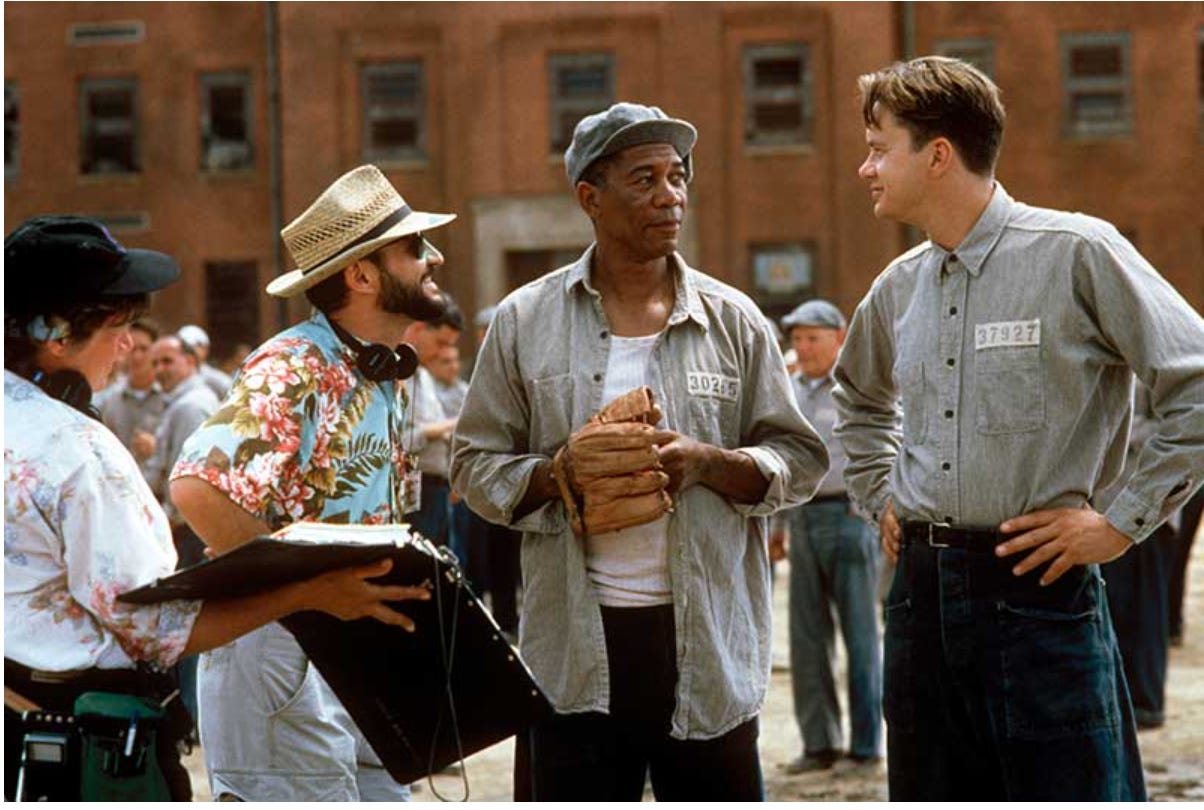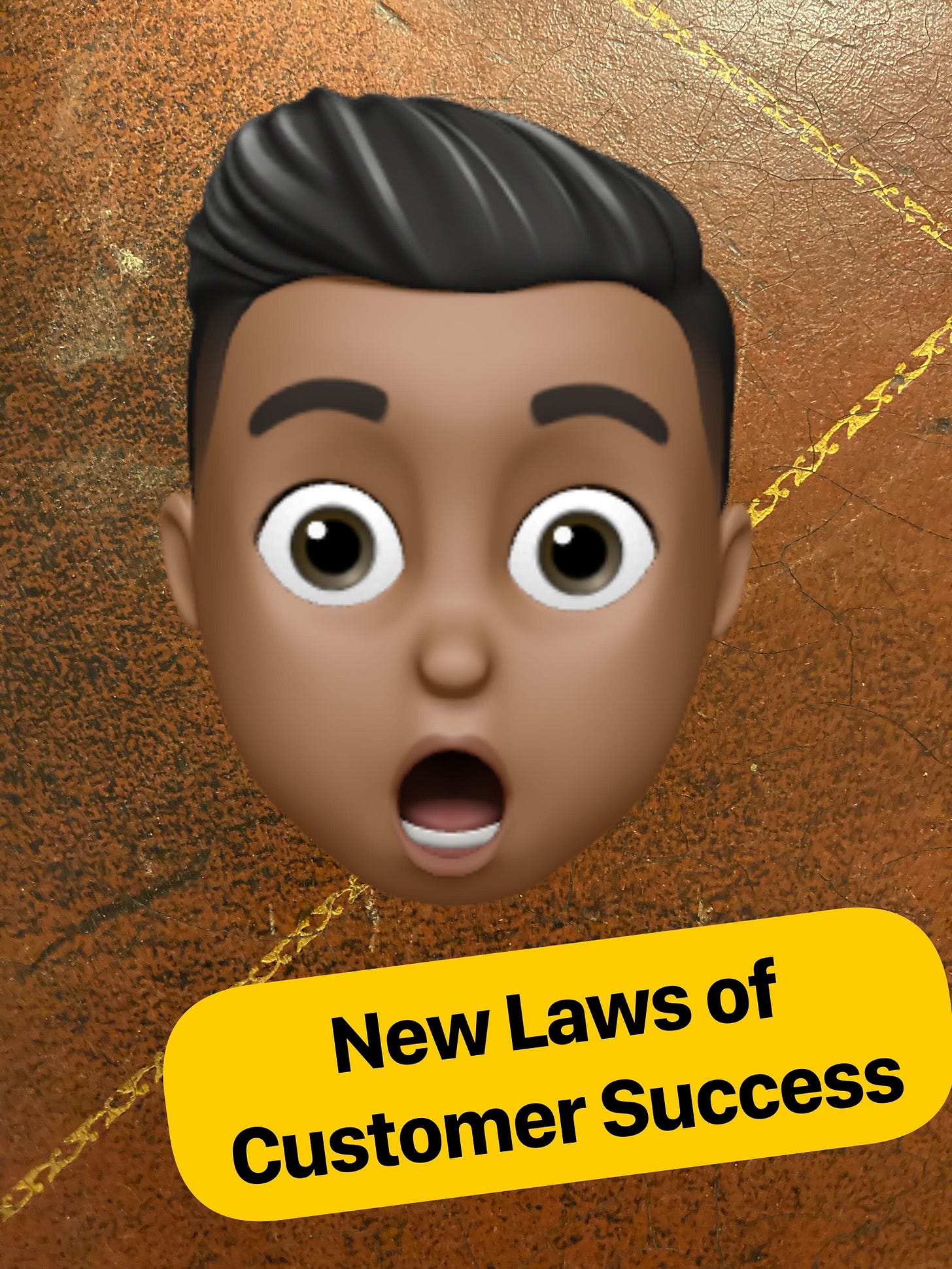How to Deal With Difficult Customers (#9)
What Stoicism (A 2300-Year-Old Philosophy) Can Teach Us About Dealing With Difficult People
Trivia Time: What critically acclaimed film starring Morgan Freeman bombed at the box office despite earning praise upon its release?
3… 2…1…
Did you get it?
Answer: Shawshank Redemption

It was a box-office disappointment, earning only $16 million during its initial run in 1994.
1994 was the year Friends debuted on NBC (though I'm not a fan), Netscape became a dominant internet browser, and Baltimore, Maryland experienced its first snow-free December.
So, here’s what I got for ya today:
- What Stoicism (A 2300-Year-Old Philosophy) Can Teach Us About Dealing With Difficult Customers
What I’m learning:
I’m learning that I’m a very emotional person. You see… I’m irrationally optimistic.
Always have been. It sounds great on paper, but in reality, here’s what happens when things don’t go my way sometimes:
If things don’t go my way, I tend to view a single, negative event as a continuing never-ending pattern of defeat (This conversation with a customer was bad today so it will always be bad)
If things don’t go my way, I assume that people are reacting negatively to me without any evidence (This customer doesn’t like the way I work, so I bet they’re messaging their colleagues on Slack mocking me)
If things don’t go my way, I blame myself almost completely for something that I may not have been responsible for (This isn’t fixed so it’s all my fault)
And this meant that with strangers, I would show them more kindness than to myself.
Recently, I am learning to give myself more credit, love, and compassion despite my imperfections.
This started after I stumbled upon Stoicism.
You see — Stoicism as a philosophy encourages us to look at the worst-case scenario in any given situation, and accept that it may happen.
For an irrationally optimistic person like me, this sounded sad.
But this quote among others started to change my mind, and push me towards becoming an optimistic stoic -
[It] invites us to open to the broken, the imperfect, the incomplete and the unfinished in our life with appreciation. There is a quiet beauty in decay and ageing. There is a wonder in the continuous change that surrounds us. It invites us to notice that the ‘perfect happiness’ that we are seeing for may be hidden in plain sight, right amongst the present messy unfolding of our life today.
And we see aspects of this in the movie - Shawshank Redemption -
Andy Dufresne is a banker and an upstanding citizen that is wrongly framed for the murder of his wife and her lover. He is sentenced to a long prison sentence to be served at Shawshank prison. Andy doesn’t become enraged by his situation. He instead proceeds by creating a dignified life for himself. He never loses himself in the face of hardship. He makes a group of friends, that together battle to keep their humanity, and ultimately achieve their freedom.
Now, ya boi here is not indicating that I will not enter a similar scenario and find peace if I am unfairly condemned.
But here are the 3 I'm learning to do if I face a customer who is nasty, disrespectful, or an asshole immediately after a meeting:… .
Identify
Evaluate
Respond
Identify
When I feel an emotion rising up, I do my best to pinpoint the underlying thought or belief that has been challenged by the customer before moving on to anything else or reaching for my phone.
For example, I’ll write: "I thought I was helping, but this guy made me feel foolish, useless and stupid."
Evaluate
I’ll think about that statement, and ask myself if it’s true. Seriously, I know I’m not perfect. But remember what I said in the beginning? That if things don’t go my way, I tend to view a single, negative event as a continuing never-ending pattern of defeat.
So I'll ask myself, "Is that statement true? Am I foolish, stupid or useless? What would I say to my best friend in this situation?"
I’ll often come to the conclusion that I’m treating myself harsher than I have to.
Life is difficult enough; why am I making it more difficult for myself?
Respond
After I’ve determined that my initial thoughts are false, I will reframe my internal response as -
“This person hurt me. I can choose to be mean. But what if I choose to be nice? What if I take the power back, and choose to move on despite feeling hurt? I feel awful for this person, who I know nothing about, and who is taking out their frustrations on me. How hurt must they be, to inflict rudeness on another human being? How insecure are they, to belittle or insult someone that they do not know?”
This is the mindset that I find most challenging to embrace.
But when I do - it works.
And in that second meeting, I’ll come out of the gate and get us on track by opening it up with a stern, and confident tone to get us back on track -
”Josh, you brought a lot of things to my attention last time. And I admire the way you work. You want this to be resolved. I’ve used your exact words to escalate the issues you were having with the right people. During the last meeting, the comments felt like personal attacks, but I know you’re just wanting to get this resolved. I take a lot pride in my work, and I can tell you do too. So here’s what I heard from the team today, mind if I share?”
(If you want to hear what this sounds like, click play…)
Here’s why I’ve learned this works:
I’m no longer emotional
I’m disarming the personally initially by saying “I admire X”
I give them a quick blurb that I’ve gone to bat for them - “I’ve used your words to tell the right people”
I also make a hostile encounter sound insignificant, as if to imply that the manner in which they communicated is not typically who they are - “I know you’re just wanting to get this resolved” That way, the next time they communicate, they’ll be a bit more intentional about how they come across
Get right back on track - “mind if I share?”
I'm learning how to master this myself. It's tough. It's really tough.
But this framework helps me figure out what to do next instead of numbing myself or ignoring my hurt feelings to avoid the pain caused by difficult customers.
Identify
Evaluate
Respond
That’s it for this week though - lmk - how do you deal with rude people in your personal and professional life?
p.s. Are you diggin’ the vibe of NLCS thus far? I’m in pursuit of trying to create the content I wish I had.
Did you learn something? Do you know anyone who could find this beneficial?
My aim is to keep my learnings real, relevant, and relatable.
Until next time my friend :-)
RK
P.P.S. If you know any Customer Success professionals who could benefit from this level of transparency, I would love to bring them into our small circle of people who care about Customer Success. Please feel free to forward this article and others from the NLCS (New Laws of Customer Success) universe to grow our tight-knit community one person at a time.




